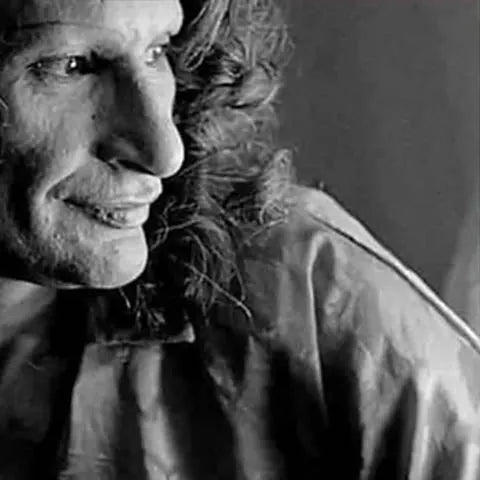
Sylvia's Legacy: Celebrating Sylvia Rivera's Life
Sylvia Rivera, a transgender woman, was born in 1951 in New York City to a Puerto Rican father and a Venezuelan mother. Assigned male at birth, she faced early challenges as her father was absent, and her mother tragically died by suicide when Rivera was just three years old. Raised by her grandmother, Rivera began exploring clothing and makeup during her formative years, although she endured physical abuse for doing so. Subsequently, at the age of 11, she made the difficult decision to run away from home, leading to her becoming a victim of sexual exploitation in the vicinity of 42nd Street.

Early Activism
Marsha P. Johnson was the catalyst for Rivera's life-altering encounter in 1963. African-American drag queen and activist Johnson was also fighting for inclusion in the homosexual rights movement, which did not recognize her gender identity.
When clients of the Stonewall Inn, a gay pub in Greenwich Village in lower Manhattan, revolted against a police raid on June 28, 1969, the two were heavily engaged. This event established a new tone for the gay rights movement. After leading a number of demonstrations against the raid, Rivera fought against the arrests.
Pride parades began in 1970, but transgender people like Rivera faced prejudice and were told not to participate. Despite all her hard work and activism, Rivera was denied the opportunity to speak at the 1973 Gay Pride Parade, even though she participated in the event.
Another issue that Rivera fought for was the inclusion of transgender people in New York's Sexual Orientation Non-Discrimination Act. The act was to "guarantee that all people of transgender background are free to self-determine gender identity and expression, regardless of income or race, and without facing harassment, discrimination, or violence," as stated in the final statute enacted in 2002 and named after her, to which the Sylvia Rivera Law Project is devoted.
In 1971, Rivera co-founded the Street Transvestite Action Revolutionaries (STAR) with Marsha P. Johnson. They had a facility, STAR House, that offered housing for those in need, and the organization became a safe place for the transgender community in New York City to gather and talk about their own problems and struggles.

Despite Riviera's efforts to promote transgender rights, she struggled with drug addiction and was often homeless. At some point in her life, she had suicidal thoughts and had tried to commit suicide.
Luckily enough, her companion, Johnson, escorted her to a medical facility and assisted in her recovery from the injuries she sustained while trying to kill herself. After this, Rivera took a break from activism and New York City. In 1992, after Johnson died, she went back to the city.
Death and Legacy
Sylvia Rivera died on February 19, 2002, after succumbing to liver cancer at St. Vincent’s Manhattan Hospital at the age of 50. However, despite her death, her legacy still lives on to this day. Many monuments,charities,roads, parks, and music concerts have been named after Rivera as a commemoration of her rich legacy.

Rivera's legacy can be described by the many charitable organizations she started and the peace she made with the LGBT community. When Rivera returned to the city, she immediately embarked on the struggle for transgender equality. In 1997, she began Transy House in Park Slope, Brooklyn, which was inspired by STAR House.
Along with that, she made peace with the LGBTQ+ community and the gay rights movement, which was growing to include them. The 1994 Stonewall Inn 25th Anniversary March included a special recognition for her.
Rivera served the poor via the church's food pantry while being an active member of New York's Metropolitan Community Church. In honor of Sylvia Rivera, two programs run by MCC New York are named Sylvia's Place, an LGBTQ adolescent refuge, and the Sylvia Rivera Food Pantry.

Her legacy is also remembered through music. In the critically acclaimed solo musical ICONS: The Lesbian and Gay History of the World (2002), Jade Esteban Estrada played the role of Rivera.
She was also remembered through the naming of many streets using her famous name. "Sylvia Rivera Way" was the new name given to the intersection of Christopher and Hudson streets in 2005, in recognition of her legacy. Greenwich Village is where Rivera began organizing in New York City, and this crossroads is only two streets away from the Stonewall Inn.
As a tribute to the Stonewall riots, which occurred fifty years ago in 2019, a massive mural featuring Rivera and Marsha P. Johnson was unveiled in Dallas, Texas. Supposedly the biggest mural in the world celebrating the transgender community, it depicts "two pioneers of the gay rights movement" standing before a transgender flag.
New York's Greenwich Village, close to the site of the historic Stonewall riots, was named as the home to a monument honoring LGBT rights champions Marsha P. Johnson and Sylvia Rivera, according to an announcement made in May 2019. In observance of Pride month and the half-century anniversary of Stonewall, the monument's official announcement took place on May 30.
As part of remembering Rivera and her legacy for what she did, a park in Italy was named after her in 2019. The National LGBTQ Wall of Honor at the Stonewall National Monument (SNM) at New York City's Stonewall Inn admitted fifty American "pioneers, trailblazers, and heroes" in June 2019, and Rivera was one of them.
The installation of the Stonewall Wall, the first national monument in the United States to honor LGBTQ rights and history, coincided with the 50th anniversary of the riots that occurred on that day.










